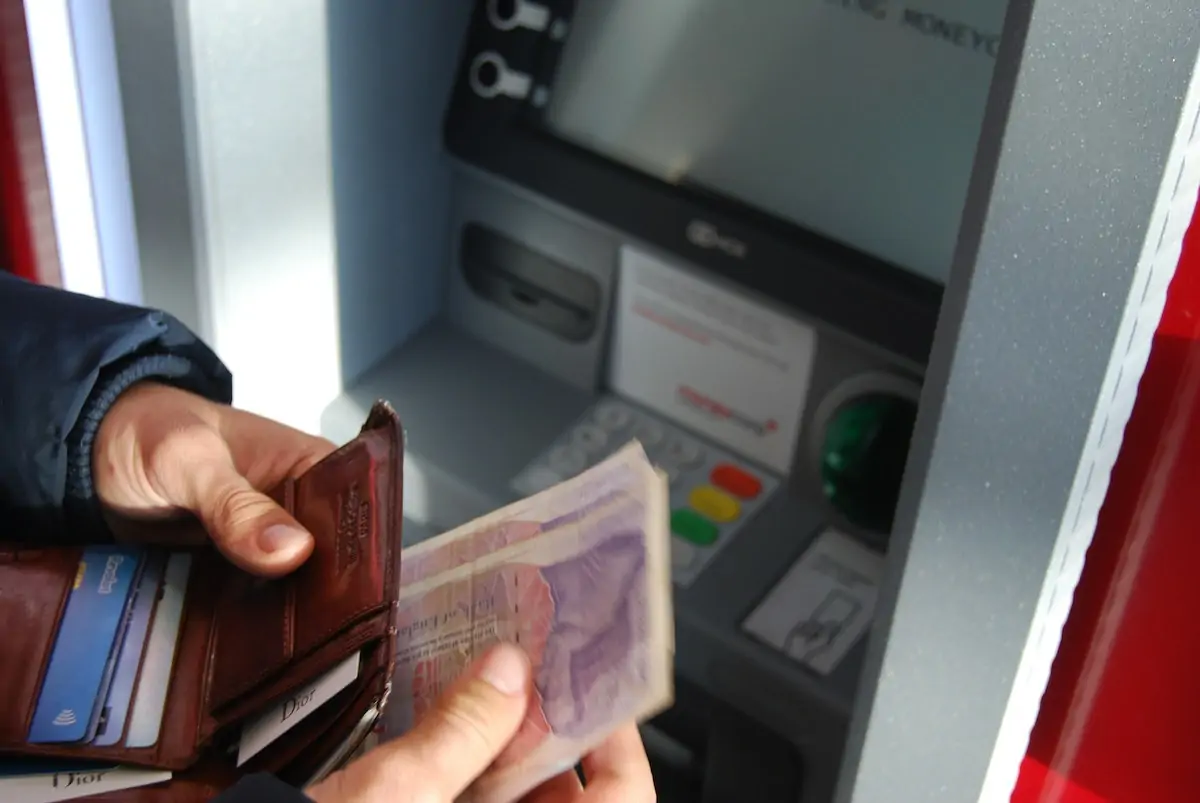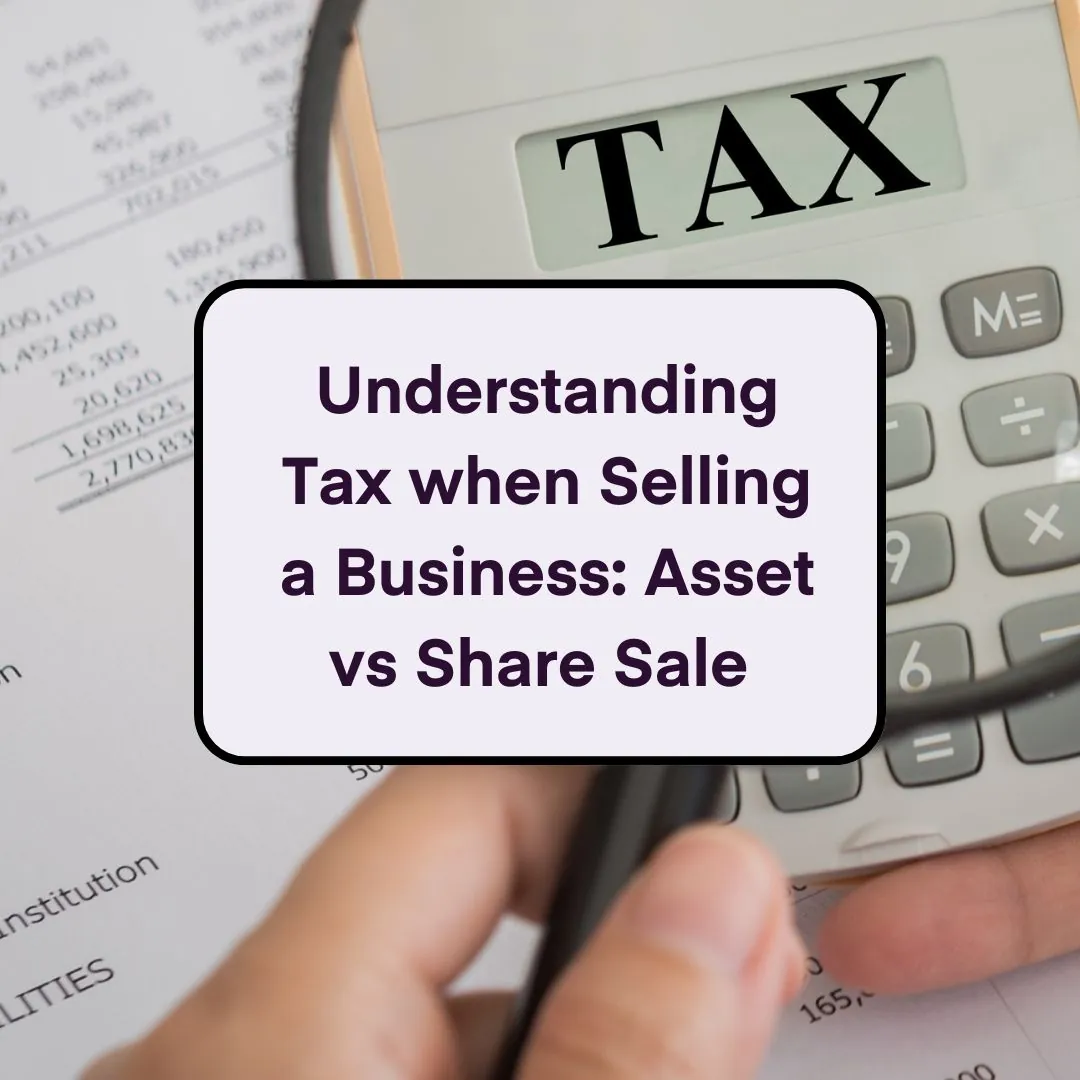
Taking money out of a business account for personal use: A short guide
9 Mar 2025This article has been checked for accuracy by Sam Millward and is up to date as of March 2025. Sam is one of our Managers who helps business owners on a daily basis and has strong track record of helping companies make sense of their numbers and achieve their financial goals.
If you have decided to run your UK business through a limited company rather than operating as a sole trader, you have a number of options for taking money out of your company.
There are four recognised methods – taking a salary, taking dividend payments, taking a director’s loan and receiving reimbursement for business expenses that you have paid through your personal account.
However, the situation becomes more complex if you want to take money out of the company to cover personal expenses, for example by using a company cheque or credit card, or withdrawing cash for the payment.
Provided you repay the money to the business, preferably as soon as possible, there is nothing illegal about the withdrawal. But, it can incur additional work for you or your accountant, and there are risks involved in mixing business and personal transactions.
In this brief guide, we’ll explain more about the recognised methods for taking money out of a business account for personal use, and provide guidelines for dealing with business payments for personal expenses.
If you need advice on the most suitable, tax-efficient method of taking money for your individual circumstances, our experienced small business specialists can help.
Taking money out of a business account for personal use
Set up a business bank account
The essential starting point is to open a separate business bank account and to use the bank’s payment cards, cheques, paying-in books or online facilities for all business-related receipts, payments and withdrawals.
That ensures that your business transactions are separate from any personal banking activities. It also makes it easier to maintain and verify accurate accounts for reporting and tax returns.
Related: How To Read Company Accounts
Taking a salary
The simplest way to take money out of your business is to pay yourself a regular salary. You will have to deduct any income tax, National Insurance and Employer’s National Insurance contributions due and make payments to HMRC.
The remaining salary after deductions is, of course, yours to use for any personal expenditure. Taking a salary regularly – monthly for example – ensures that you have access to personal funds reasonably quickly, if you need them.
An accountant can advise you on whether salary is the most tax-efficient way to withdraw money from the business.
Receiving dividends
Dividends are a tax-efficient method of receiving money from your business. Funds to pay dividends are available from any remaining profit after payment of corporation tax.
You may wish to retain some of that profit for investment or other business purposes, but you can take the remainder as an alternative to salary or other withdrawals. Dividends are generally paid at the end of your financial year, so they would not provide a source of short-term funds if your personal needs are urgent.
If you have shareholders or other directors in your business, you will have to provide them with a share of the total dividend based on the proportion of the business they own. That could reduce the amount of dividends you withdraw.
Again, you should take professional advice on the suitability of dividends for your circumstances and the structure of your business.
Arranging a director’s loan
You can arrange a director’s loan from your business to put funds into your personal account. Similarly, you can make a loan to the business if it needs funds for expansion or to cover unforeseen costs.
You should aim to repay the loan to the business before the end of your financial year. If not you will be liable to an additional tax charge, known as S455, on any outstanding balance.
A director’s loan is a useful low-cost or interest-free source of funds to meet short-term personal requirements. However, you should take advice on the tax implications before making any arrangements.
Getting reimbursement of business expenses
You should normally cover any business expenditure from your business bank account. However, there may be occasions when you have to make personal payments, particularly for smaller items from a retailer or travel costs if you don’t have a company credit card.
Provided the expenditure is wholly for business purposes, you can receive reimbursement for the costs. This is not new personal income, unlike the other three sources, but it does ensure that you will not be out of pocket for making business payments.
Taking money out for personal expenses
If you have to take money from your business for personal expenditure by other means – withdrawing cash or using a company payment card or cheque, for example – the most important requirements are to maintain detailed accurate records and repay the amount as quickly as possible.
The records must cover the date and amount withdrawn and the date and amount of any repayment. Any outstanding amounts at the end of the financial year may be classified by HMRC as income and liable to tax and National Insurance contribution or be left as an outstanding directors' loan and S455 becomes payable.
Minimise cash withdrawals when taking money out
It’s essential to keep any cash withdrawals to a minimum, unless you have no alternative. Banks and accountants are required to report suspicious cash transactions to the National Crime Agency as part of a move to prevent fraud or money laundering.
Keep accounting simple when taking money out
If you make frequent withdrawals for personal expenditure, you will increase the amount of time you or your accountant have to spend on record keeping.
Those withdrawals will also make it difficult to keep an accurate picture of cash flow. It’s essential that you understand your cash position so that you are able to meet your obligations to suppliers and creditors on time.
Money withdrawn from the business for personal reasons means you could incur penalties or interest charges for late payment on business expenditure.
Maintain personal liability protection
By setting up a limited company, you gain protection against personal liability for the debts of your company.
However, if your business should unfortunately hit serious problems, it may be difficult to avoid legal action if creditors seek recovery when funds are not available because of personal withdrawals.
Present a strong clear financial picture
It’s important to present a strong financial picture if you’re growing your business. Banks, investors and potential shareholders will look carefully at your accounts and personal withdrawals can distort the picture.
Potential clients also take financial stability into consideration when assessing suppliers so, again, minimising personal withdrawals will ensure you present an accurate picture of your business.
Get professional help from an accountant
Making the right decision about withdrawing money from your business for personal use can be complicated and time-consuming. Our team of small business accountants are highly-experienced in helping companies with professional advice that can maximise income while reducing tax liabilities.
Get in touch with us today for further advice on 0207 043 4000 or info@accountsandlegal.co.uk. You can also get an instant accounting quote using our online tool.


















